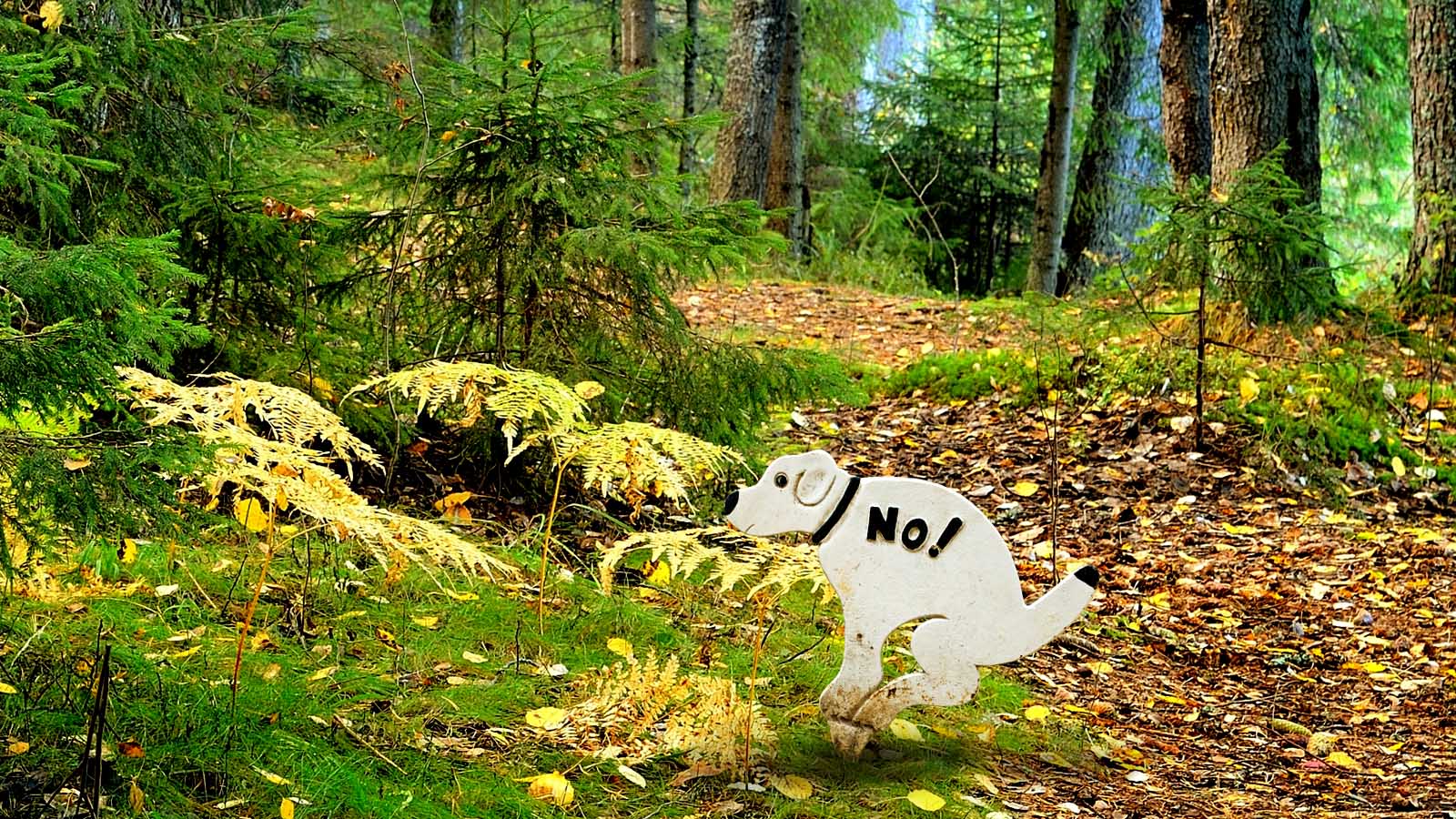Send your question to Umbra!
Q. I have recently been blessed with the addition of a four-legged friend to my household of one. We frequently take advantage of a local wooded trail to get a little exercise. The Admiral also takes the opportunity to do his business in the open air and far from manicured yards or sidewalks. My question is: Do I need to carry “it” out or can I safely leave his call of nature in nature to feed the Earth and help sequester carbon just like his cousins the large herbivores we call cows do?
Bob T.
Gainesville, Fla.
A. Dearest Bob,
Congrats on the new addition! On the pro side, you now have a trusted bud to fetch your slippers and alert you to threats posed by passing squirrels. Of course, you’ve already discovered the not-so-pro side of dog ownership: poop duty. We discussed how to best dispose of your pooch’s unmentionables here, but you add an interesting twist: What if The Admiral (great name, by the way) does his business not in the ‘burbs but in the woods?
Can you leave those droppings out in nature? Short answer: Yes — but only if you bury them. Time to trade those doggie-doo baggies for a nice, stout trowel.
Why? For one, aesthetics: What if every dog walker treated the trail like a personal poop highway? I’d wager most doggie deposits happen on or near the path rather than far into the wilderness, so it wouldn’t take long for a truly gross scenario to build up. Then there’s the health aspect: Canine excreta is full of pathogens that pose a risk to other humans and wildlife if left out in the open. One might argue that wild animals treat the great outdoors as their bathroom, so what’s the harm if dogs do, too? Man’s best friends exist at a much, much higher population density than wildlife, that’s why.
You note that your favorite trail is far from neighbors’ lawns and sidewalks, Bob, but those aren’t the only places we should declare doodie-free. Our main concern with dog poop is water pollution by way of stormwater runoff. Left uncovered out in the open, dog waste can be swept into streams and lakes when it rains, where it lowers water oxygen levels, releases ammonia, promotes unhealthy algal growth, and threatens aquatic life.
So if it can’t be left out, we’re left with two choices: carry or bury. Scooping The Admiral’s poop is a viable, if not pleasant option, but that practice does create a whole lot of plastic bag waste. Natural spaces give us the option to bury it, something you probably shouldn’t attempt in a neighbor’s yard or local soccer field. Just find a spot 200 feet from the trail and any water sources, dig a hole at least six inches deep, add poo, and cover. Soil microorganisms will go to work breaking it down, and you get to walk away scat-free. This is the preferred practice in many federally protected wild areas, by the way — for you and your pup.
Now, as to this business about dog poop nourishing the earth and sequestering carbon: Decomposed canine manure can provide some nutrients for surrounding plant life. But I’ve yet to see any compelling evidence that dog doo does the atmosphere any favors (in fact, dog ownership as a whole has been accused of having a substantial carbon footprint). And I’ll just say that the “cows sequester carbon” thing remains controversial and leave it at that.
Scoopily,
Umbra



